Marvel’s latest chapter takes flight with Anthony Mackie at the helm, but does it soar or falter under the weight of its own ambitions?
The Weight of the Shield
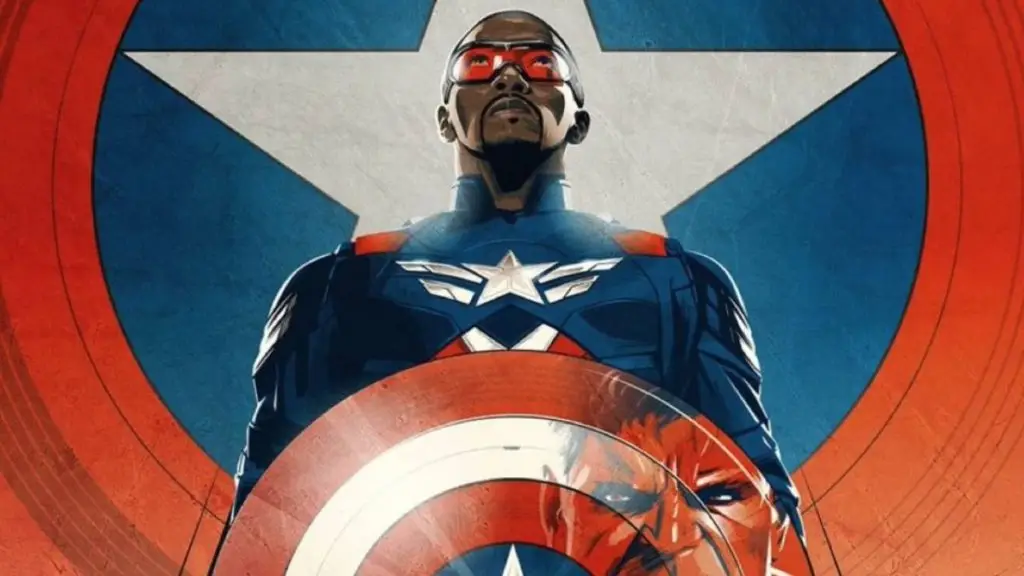
Stepping into the boots of Captain America is no small feat, and Captain America: Brave New World understands that. As the first solo outing for Sam Wilson (Anthony Mackie) as the Star-Spangled Avenger, the film shoulders the immense responsibility of both continuing Steve Rogers’ legacy and carving out a distinct identity. Under the direction of Julius Onah (Luce, The Cloverfield Paradox), the film aims to blend political thriller elements with high-octane superhero spectacle.
But does it succeed? The answer is complicated.
A Political Thriller Wrapped in Superhero Armor
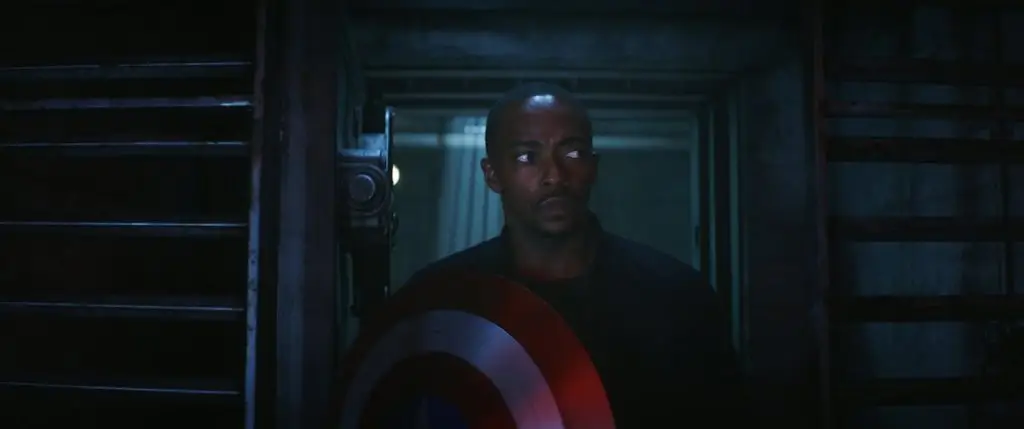
From its opening moments, Brave New World signals a return to the grounded espionage and political intrigue that defined Captain America: The Winter Soldier. The film centers on a global conspiracy involving President Thaddeus “Thunderbolt” Ross (Harrison Ford, stepping into the late William Hurt’s role), who finds himself at the center of an assassination attempt. With whispers of a hidden enemy and the reemergence of Samuel Sterns (Tim Blake Nelson), now fully evolved into The Leader, Sam Wilson is thrown into a conflict that challenges his place in this new world.
Unlike Steve Rogers, whose struggle was often about adapting to modernity, Sam’s fight is far more personal—proving to the world, and perhaps himself, that he is worthy of the mantle. It’s a compelling thematic throughline, but one that occasionally gets lost in the film’s sprawling plot.
Anthony Mackie’s Moment
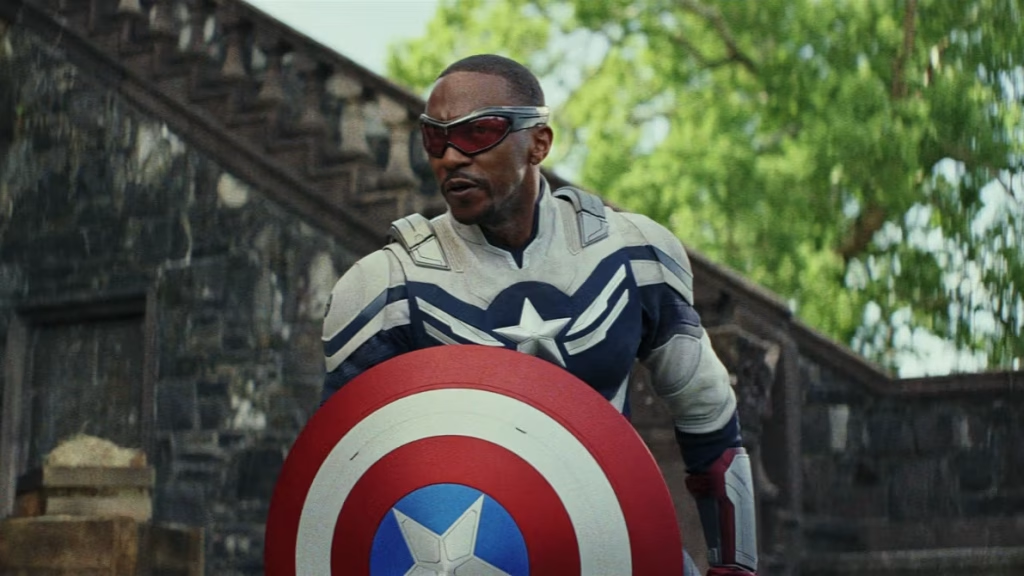
If there’s one thing Brave New World absolutely nails, it’s Anthony Mackie’s performance. His Sam Wilson is not simply trying to fill Steve Rogers’ shoes—he’s reshaping what it means to be Captain America. The film leans heavily into his internal conflict, forcing him to grapple with questions of legacy, race, and political identity. Mackie delivers a nuanced, emotionally charged performance, balancing Sam’s determination with the weight of expectation.
His interactions with Isaiah Bradley (Carl Lumbly), a super-soldier erased from history, provide some of the film’s most poignant moments. However, these themes, while powerful, feel somewhat underexplored amidst the film’s more traditional superhero beats.
Harrison Ford as President Ross – A Mixed Bag
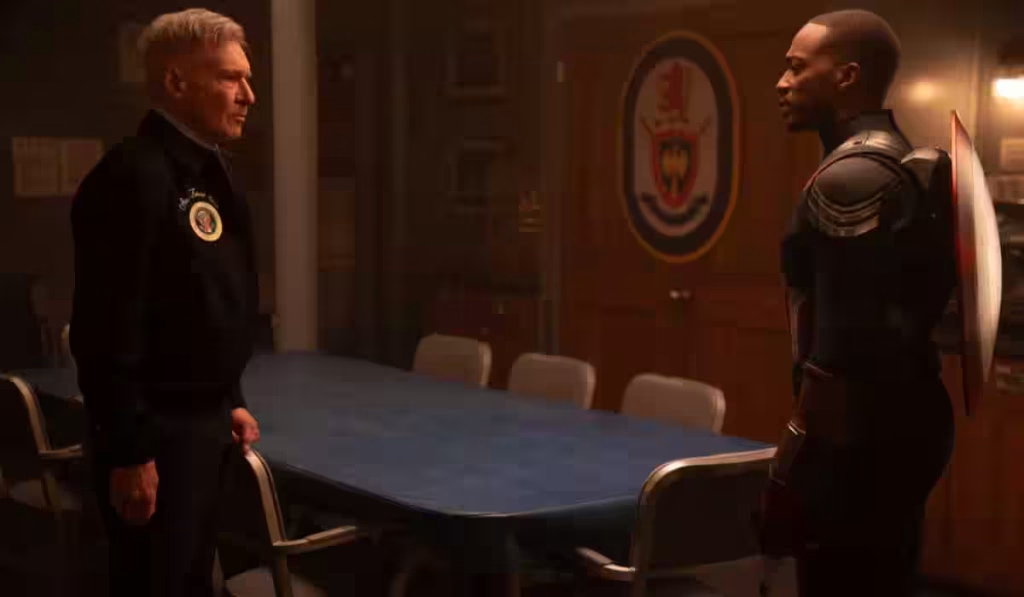
Bringing a Hollywood legend like Harrison Ford into the MCU should be a slam dunk, and while his presence undeniably elevates the material, the script gives him surprisingly little to do. His transformation into Red Hulk—a moment that should feel seismic—lands with less impact than expected due to underwhelming CGI and rushed pacing. Ford’s natural gravitas carries him through, but one can’t help but feel that this role deserved a more compelling setup.
Tim Blake Nelson’s The Leader, meanwhile, brings a calculated menace that offers shades of classic Marvel villainy, though he, too, feels somewhat underutilized.
Action and Spectacle – A Mixed Execution
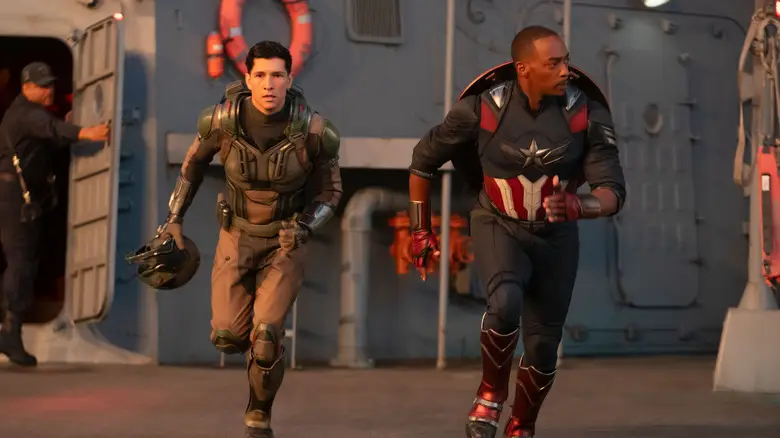
Visually, Brave New World struggles to maintain the high bar set by previous MCU installments. The practical action sequences—particularly Sam’s aerial combat—are exhilarating and well-choreographed, but when the CGI takes over, the cracks begin to show. The much-hyped Red Hulk transformation is disappointingly lackluster, with effects that feel more in line with early 2010s Marvel than a modern blockbuster.
Julius Onah’s direction is at its best in the film’s quieter, tension-filled moments, but the action-heavy third act leans too much on formulaic CGI mayhem, diluting the impact of the story’s more grounded themes.
A Step Forward, but Not a Leap
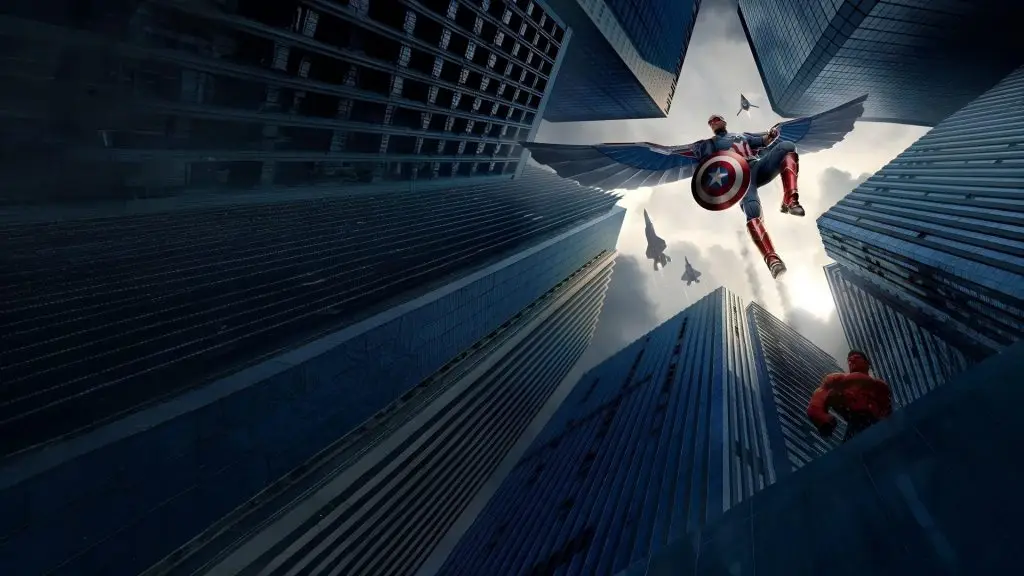
Captain America: Brave New World is an ambitious film that doesn’t quite reach the heights of its predecessors. It’s at its strongest when it focuses on Sam Wilson’s personal journey and the political undercurrents shaping this new era of the MCU. Yet, when it veers into overstuffed spectacle, it loses sight of the character-driven storytelling that made The Winter Soldier such a triumph.
It’s a solid entry, but one that ultimately leaves the audience wanting more—more depth, more nuance, and more confidence in its boldest ideas.
Final Verdict: 3.5/5 ⭐⭐⭐⭐☆
Pros:
✅ Anthony Mackie delivers his strongest MCU performance to date
✅ Strong political intrigue reminiscent of The Winter Soldier
✅ Engaging character moments, particularly with Isaiah Bradley
Cons:
❌ Underwhelming CGI and action-heavy third act
❌ Harrison Ford’s President Ross feels underdeveloped
❌ Themes of legacy and identity don’t get the depth they deserve
FAQs
Is Captain America: Brave New World better than The Winter Soldier?
Not quite. While it echoes The Winter Soldier in tone, it lacks the same sharp storytelling and tight execution.
Does Steve Rogers appear in the film?
No, Steve Rogers remains absent, with only passing references to his legacy.
How does the film set up future MCU projects?
The post-credit scenes hint at a larger conspiracy involving The Leader and Thunderbolts, teasing future conflicts for Sam Wilson and the next phase of the MCU.
Is it worth watching in theaters?
For die-hard Marvel fans, yes. For casual audiences, it might not be essential viewing.
Final Thoughts
Captain America: Brave New World is a crucial stepping stone for Sam Wilson’s Captain America, but it doesn’t quite stick the landing. The film shines in its quietest, most introspective moments but stumbles when it leans too hard on blockbuster spectacle. It’s not a bad film by any means—just one that doesn’t quite live up to its potential.
🔥 Will Sam Wilson’s Captain America soar in future MCU installments? Only time will tell. 🔥
